The explosive growth of protest in society and the increased popularity of opposition leaders have brought back to life ‘dirty’ methods of counter-attack by state agencies. In recent times, for example, political leaders of the anti-Kremlin street protests have been targets of surveillance, phone hacking and illicit video recordings. These include Boris Nemtsov and Vladimir Ryzhkov, and even Gennady Gudkov MP (who, although a member of the State Duma has been highly critical of the Kremlin and its methods).
The explosive growth of protest in society and the increased popularity of opposition leaders have brought back to life ‘dirty’ methods of counter-attack by state agencies. In recent times, for example, political leaders of the anti-Kremlin street protests have been targets of surveillance, phone hacking and illicit video recordings. These include Boris Nemtsov and Vladimir Ryzhkov, and even Gennady Gudkov MP (who, although a member of the State Duma has been highly critical of the Kremlin and its methods). Transcripts of their telephone conversations are freely available on the Internet, but as yet nobody has been brought to account and the official investigation is still to establish who the culprits were. The victims of the scandals themselves have no doubt that they were bugged and filmed by special services.
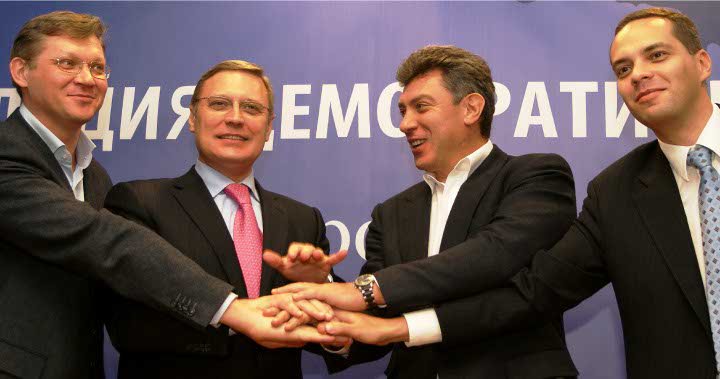
Leaders of the PARNAS unofficial opposition grouping
have among the most prominent targets of covert
surveillance.
In the last decade, Russia's intelligence services and law enforcement agencies have vastly increased their capability in this area. Seven separate investigating agencies have been granted the right to intercept information using the so-called SORM system (System for Operative Investigative Activities) that operates throughout Russia. However, while in the 1990s and in the mid-2000s the FSB carried out monitoring and intercepting activities on behalf of partner organisations, today each agency is busy at work setting up their own parallel intercept systems.
Anti-opposition operations
On 19 December 2011, transcripts of nine taped telephone calls between Boris Nemtsov and other opposition activists were posted on the Kremlin-friendly website lifenews.ru. A month later, a video recording surfaced of a meeting between two other opposition politicians — Gennady Gudkov MP and Vladimir Ryzhkov, chairman of the PARNAS political party. In early February another video clip of Ryzhkov was uploaded to a number of sites including informacia.ru. This site, known to be close to the FSB, had previously been used to attack Western diplomats: in July 2009 it featured a video tape showing the UK’s Deputy Consul General in Ekaterinburg James Hudson with two prostitutes, which led to Hudson’s resignation. A clip showing US diplomat Kyle Hatcher, however, posted on the same site a month later did not result in the diplomat’s resignation: an FSB investigation carried out following a protest by the Ambassador ascertained the clip was fake.
An important question that many experts have been asking themselves is who actually stands behind these operations: is it the work of private detectives working on a special commission or the intelligence services themselves?
Gennady Gudkov MP is deputy Chair of the State Duma’s Security Committee, and a retired KGB colonel who in the 1990s founded Oskord, one of the largest security companies in Russia. He is only too familiar with the methods used by both types of agencies. He is left in little doubt that the intelligence service was involved.
‘On Friday 13 January (and don’t tell me dates don’t matter!) I had a meeting with Ryzhkov,’ Gennady Gudkov told us. ‘The meeting was set up at short notice, which is why I am convinced that professionals were at work. If we had agreed to meet well in advance someone could conceivably have hired detectives or brought in a private security firm. But this was an impromptu meeting - we had just arranged to meet at the Akademia Pizzeria (on Tverskaya St, near the State Duma) on the phone. There wasn’t enough time for a private firm to get ready. I have experience with detective agencies and know how they operate.’
Asked to explain how the surveillance may have worked in his case, Gennady Gudkov replies without hesitation. ‘There are two possible scenarios. In the first, either my telephone or Ryzhkov’s, or both, were tapped, the person in charge of listening in immediately informed their superiors, and the order was issued to bring in an external surveillance unit to record our conversation.
"Investigating officers and state employees whose job should be to catch gangsters, ... instead regularly abuse their authority and target the opposition. "
Gennady Gudkov MP, Deputy Chair of the State Duma’s Security Committee
‘The other scenario is as follows: an external surveillance unit had been trailing Ryzhkov around the city. These units have at their disposal an operational wardrobe, allowing agents to change their hats, jackets or scarves, as well as operational gadgets used for clandestine filming of their target. We were filmed from a neighbouring table.
‘At least two types of equipment were used: a concealed parabolic microphone and a hidden camera. This is quite a simple technique, albeit one that only authorised officials are allowed to use; anyone else found using them is theoretically liable to prosecution. The microphones can be particularly powerful, able to pick up and record a conversation from 50 to 300 metres. The model used in this case wasn’t too powerful and was not capable of producing a good quality recording, although it did record part of the conversation. This type of microphone is best concealed in a notebook or a briefcase; you conceal the antenna and direct it at the source. To record our conversation using an ordinary dictaphone you would have had to place it between Ryzhkov and myself.’
‘Who do you think was behind this recording?’
‘They were investigating officers, state employees whose job should be to catch gangsters, but who instead regularly abuse their authority and target the opposition. People in charge of internal policy within the United Russia Party or in the Department of Internal Policy at the Presidential Administration can give law enforcement officials oral instructions to act against the opposition.’
‘Which agency do you think was in charge of the action against yourself and Ryzhkov?’
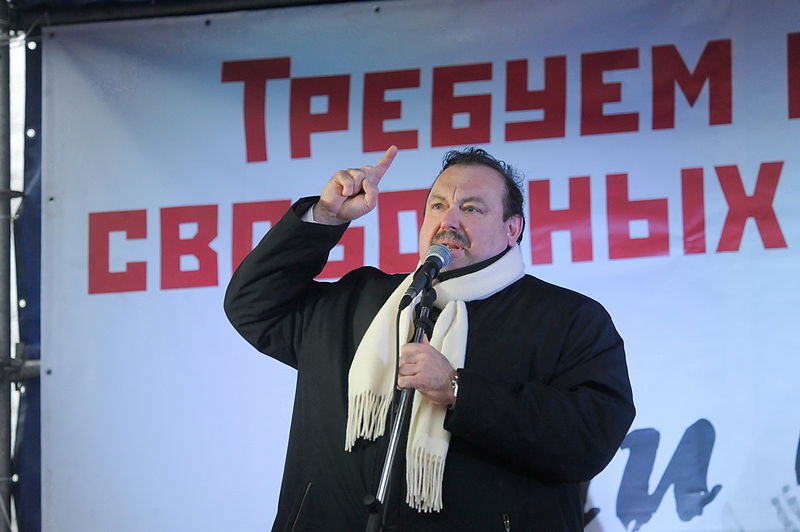
Gennady Gudkov MP believes his private meeting
with Vladimir Ryzhkov was filmed and leaked
by a governmental agency.
‘That I don’t know. It may have been the FSB (the Federal Security Service), which has the best technical equipment; it could have been the MVD (Ministry of Internal Affairs), or the FSKN (the Federal Anti-Narcotics Agency) or the SVR (the External Intelligence Service). All these agencies are essentially authorised to carry out such investigations. We obviously need to find out who ordered and approved it.’
Boris Nemtsov, whose telephone conversations were intercepted and posted on lifenews.ru, is convinced the FSB is behind the tapping of his telephone:
‘They’ve been tapping my phone all my life,’ says the politician. ‘I’ve had the same number for a number of years and even though I’ve been aware of everything, I haven’t changed it because I don’t want to waste taxpayers’ money. On the instructions of Putin, the KGB people and [Vladislav] Surkov, they’ve been eavesdropping on my conversations and leaking everything on the Internet. In the past they leaked my conversations with Chubais and Lisovsky. These kinds of activities violate the Constitution and the Criminal Code. And the website lifenews.ru, which has posted the recordings of my telephone conversations, is in breach of Articles 137 and 138 of the Russian Criminal Code.’
‘When did the leaked telephone conversations take place?’
‘Between 7 and 22 December [2011], in the run-up to the rallies in Bolotnaya Square and Sakharov Boulevard. Their goal was simple: they wanted to divide us in the run-up to the rally but the opposition didn’t fall for it.’
‘Who do you think are involved - the FSB or the police?’
‘The FSB, of course.’
A nice earner
In the course of our investigation, we spoke to Aleksei, a 45 year old former military intelligence officer and deputy director of the security service of one of Moscow's most prominent oligarchs. He also took a view that it was unlikely that opposition politicians’ conversations could have been intercepted by anyone other than the intelligence services.
‘After Russia adopted the GSM digital standard everything became much more expensive. Some friends of mine working for one of the intelligence services happened to be buying phone-tapping equipment and they offered to buy us an extra set. It cost over half a million US dollars. I thought to myself: if we buy it, I’d have to hire several people just to work on this equipment, but I’d have to earn all this money back for my employer. How many people would I have to tap continuously to justify this expense?'
Aleksei claims that when security services need to eavesdrop on someone's conversations it is much easier to approach state agencies who are authorised to intercept telecommunications. And other scandals involving unlawful wire-tapping would seem to support this claim. Whereas in the 1990s it was common for cassettes with video recordings and discs with intercepted conversations to be discovered during police raids on security services and private security firms, lately they have been turning up in the offices of law enforcement officials.
In 2007, the head of Operational Support at the Federal Antinarcotics Agency, General Alexander Bulbov, was arrested, accused of carrying out illegal phone tapping on behalf of commercial companies. Investigators reported that Bulbov's subordinates had bribed officials at the Moscow City Police Dept, giving as much as 50,000 US dollars per tapped phone-number per month. The investigation also led to the arrest of Mikhail Yanykin, deputy head of the Special Technical Operations in his office at the Police Dept at Petrovka 38.
"In the 1990s it was common for cassettes with video recordings and discs with intercepted conversations to be discovered during police raids on security services and private security firms... lately they have been turning up in the offices of law enforcement officials."
Aside from Bulbov and his accomplices, there were two further groups of arrests concerning police (MVD) employees that year. The first group included four officials of the national Interior Ministry and an official of the Internal Affairs Department of Moscow’s Southern Administrative District, who carried out phone-tapping for the benefit of a business friend. In total, the officials were paid 42,000 US dollars for the audio files they supplied. The other group was headed by the director of a division of the Moscow Department of Internal Affairs, who charged clients 10,000 US dollars for each unlawful phone-tapping operation.
And in April last year, the head of the police department No. 1 in Mytischi (Moscow Region) was caught carrying out unlawful phone-tapping, along with a couple of crime unit agents working in the same department.
Such cases serve as an excellent illustration of how corrupt law enforcement officials have learned to sponge on the surveillance systems created by the state. Meanwhile, the system is being continuously updated and the number of bodies involved is constantly increasing.
SORM: a national interception network
The system that allows Russian intelligence services to intercept telephone calls, including mobile networks as well as Internet communications, is known by the acronym SORM [‘Automated System of Operative Investigative Activities’].
The tactical and technical foundations of SORM were first developed by a KGB research institute in the mid 1980s. Full implementation of the project only happened in the early 1990s, however, which is when SORM was initially installed on analogue telephone lines. The Ministry of Communications signed off the first SORM-related document in 1992. It obliged operators to allow intelligence services to listen in to telephone conversations and to intercept mail. At that point of implementation, SORM did not encounter any particular resistance since the traditional means of telecommunications (post, radio, telephone and long-distance communications) had not yet been privatised and were still an integral part of the Soviet communications industry controlled by the Ministry.

As the number of state agencies legally authorised to
intercept phone and Internet traffic increases, is
Russia beginning to resemble Orwell's 1984 vision?
Photo: Boris U.
The public first became aware of SORM in 1998 when news was leaked that the FSB, Ministry of Communications and supervisory agencies had developed new regulations for installing interception devices on servers run by Internet providers. The Internet community as well as providers also made their outrage known when it transpired that although agents required a court order to sanction interception, they were not obliged to show it to anyone apart from the FSB technical staff who actually carried out the intercept. Providers, for example, have no right to demand that the FSB show them the order, since they are denied access to secret information.
It soon became clear, however, that few of the providers objected to the idea of uncontrolled interception of Internet traffic by intelligence services per se. Their concerns were rather more focused on more material matters: the suggestion that they themselves had to bear the cost of the expensive interception equipment, which would also be housed at the providers’ premises.
Intelligence services managed to overcome the unwelcome opposition from the part of providers, and in the first decade of the millennium SORM equipment was installed by all Internet providers and operators of mobile and landline networks. In line with new SORM regulations, which were adopted in the mid-2000s, interception is carried out remotely and without the providers’ knowledge.
Three versions of SORM currently operate in Russia: SORM-1, SORM-2 and SORM-3. Vasily Yelagin, chief analyst of Protei Technologies Research (the main supplier of SORM equipment) explained to us that SORM-1 intercepts telephone traffic, including mobile networks, while SORM-2 is responsible for intercepting Internet traffic, including GPRS. The interception producers’ advertisements suggest that SORM-3 will serve to gather information from all communication media, will offer long-term storage (three years), and provide access to all data on subscribers. In addition, the SORM system enables the use of mobile control points, for example a notebook with a special mobile block that can be plugged directly into communication hubs and immediately intercept and record the operator’s traffic. A single notebook of this kind has the capacity to simultaneously tap the lines of 1,024 subscribers.
A growth industry
Although in Russia seven intelligence agencies are authorised to carry out operative investigative activities, it was initially the FSB that was put in charge of SORM. A presidential decree (891) in 1995 stipulated that ‘control over postal items, telegraphic and other communications ... shall be handed to the relative federal security agencies...’ The same decree stipulated that unified central control points (or remote control points) were to be established for this purpose by the FSB. The first ones were established in Moscow and St. Petersburg, and later in other Russian cities, at regional intelligence services headquarters. A cable was laid from these points to the premises of the providers where special interception equipment had been installed. In this way, the FSB became responsible for installing the SORM equipment, while other intelligence services and the police gained access to the interception system via FSB remote points.
By the first decade of the new millennium, however, the FSB were no longer in sole charge of the technical side of SORM. On forums across the land, Internet providers began to complain about being approached by police (MVD) officials demanding that interception equipment corresponding to their own needs should also be installed, independently of the FSB.
Perhaps unexpectedly, it was the Federal Prisons service (FSIN) that was the next agency to get access to a bugging system. State purchasing records show that the FSIN’s L Directorate in Chuvash, for example, ordered a SORM (‘SORMovich’) console in December 2008. This was due to be installed in the Directorate's building in Cheboksary. Soon after, Samara’s L Directorate followed the example of their Chuvash colleagues, also buying a SORMovich console.
The SORMovich module is produced by MFI-Soft, a company which we covered in a previous article on openDemocracy Russia. The console incorporates both hardware and software and is capable of intercepting information on the Internet as well as mobile networks operating within the GSM-CDMA-GPRS systems. The relevant government tender specifies a system that allows access to as many as three remote ‘inspectors’ simultaneously.
Back in 2001, the Zabaykalsky FSIN Directorate began construction on a fibre-optic network for installing SORM in Krasnokamensk, a city near the Chinese border. Krasnokamensk is famous not so much for being the site of the largest uranium mine in the world, but rather for housing the penal colony where oligarch Mikhail Khodorkovsky served his early years of imprisonment. Accompanying documents clarify that the cable for conducting intercepted traffic was to be laid from the city's telephone exchange to the building of the FSIN Directorate. This suggests that the FSIN ‘monitors’ will be able eavesdrop not only on the colony, but on the entire city too.
We asked FSIN whether these contracts meant that the agency was setting up its own bugging system, independent of the Lubyanka [FSB headquarters]. Andrei Kromin, head of the FSIN press office, told us he was ‘following classified guidelines, so no comment’.
The manufacturer MFI-Soft has nevertheless confirmed to us that not one but several remote interception points can be connected to the equipment they supply to operators. That means that providers have now started installing technology that can provide simultaneous access to their traffic to several intelligence services.
The MVD, FSB, the customs agency, foreign intelligence, FSO (The Federal Protective Service) and FSKN (The Federal Anti-Narcotics Agency) are all legally authorised to monitor and intercept phone and Internet traffic. Each of these agencies has a network of regional directorates and each of these can be involved in special operations targeting opposition politicians. For this reason it is very easy for the intelligence services to escape their responsibilities. It is likewise impossible to say for certain which particular agency was responsible for bugging opposition politicians and activists.
Read more
Get our weekly email

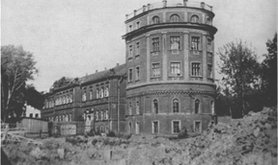


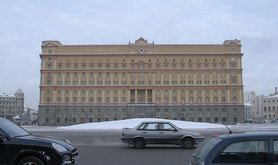


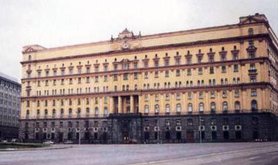
Comments
We encourage anyone to comment, please consult the oD commenting guidelines if you have any questions.